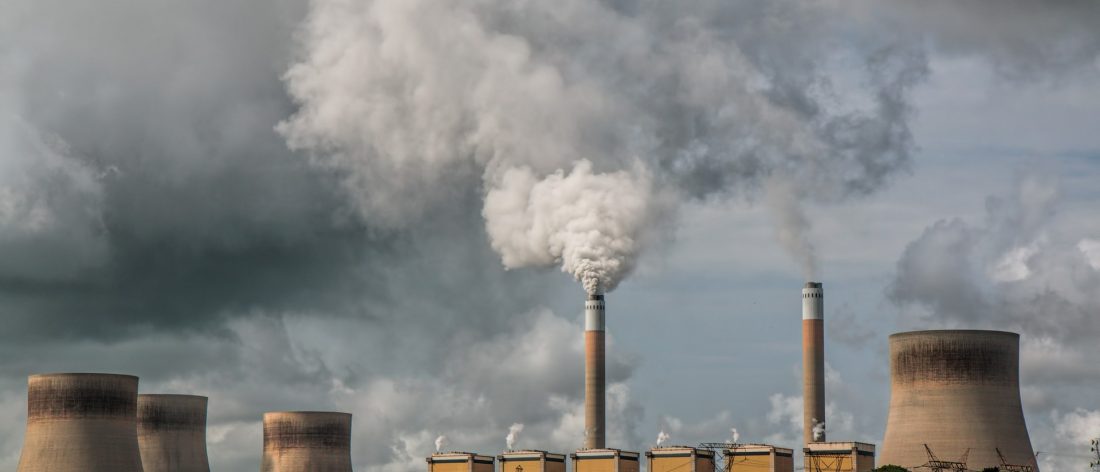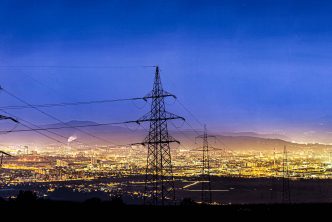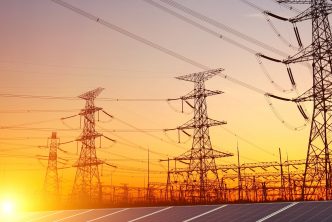Introduction
Natural gas is a fossil fuel just like crude oil which is made up of hydrocarbons found deep inside the earth and drilled in the same way as crude oil, though natural gas exists in a gaseous state. It is one of the cleanest, safest, and most useful of all energy sources and because of its clean-burning nature, it has been a very popular fuel for the generation of electricity. Typically, countries with abundant proven gas reserves (i.e. verified amount of gas in the ground) generate most of their electricity from natural gas.
In Nigeria, thermal power from gas and steam power plants accounts for 80{1c02100822988c48c7b0a484ab61ac3d7f398d67c2f66594d88b2db33072d9d9} of the nation’s power generation. Furthermore, Nigeria has one of the largest proven gas reserves estimated at 186.6 Trillion cubic feet (Tcf). This represents 2.8{1c02100822988c48c7b0a484ab61ac3d7f398d67c2f66594d88b2db33072d9d9} of the world’s proven reserves, thus making Nigeria the 9th largest gas reserve holder in the world and largest in Africa. Based on the country’s peak generation of 5,074.7MW in February 2016, it is estimated that Nigeria can generate electricity for this capacity every day for the next 380 years (assuming all the nations generating plants use gas) before we drain our gas reserves. Unfortunately, despite the country’s abundant reserves, gas production is low and the demand for gas in the Nigerian market (the domestic market) significantly exceeds available supply. This situation has serious adverse economic consequences including the chronic and acute power shortages (blackouts) that have plagued the country for decades.
Value Chain
The gas market is divided into three broad categories; Upstream, Midstream and Downstream. The Gas Upstream deals with finding new gas reserves (gas exploration), developing them and producing gas out of the reserves. The Midstream business is primarily concerned with processing the gas. The Downstream business which deals with storage and distribution of processed gas to the final customer (such as power plants) either through pipelines, shipping or trucking. Generally, gas projects require huge capital investments due to the nature of business; therefore, it has a unique business model where gas is first sold (at least in principle through gas agreements) before it is developed by the upstream supplier.
For example, because it is difficult to store natural gas after it has been produced or to simply relocate a pipeline to another customer after construction, gas producers and transporters typically sign long-term gas agreements (such as Gas Sales Agreements (GSAs) and Gas Transportation Agreements (GTAs)) with gas buyers prior to developing the gas reserve or building a pipeline. Gas is currently being supplied to most power plants via legacy gas supply agreements with the defunct Nigerian Gas Company (NGC). NGC had contracted for gas volume with upstream gas suppliers and supplies gas to the power plants on loose “reasonable endeavours” (an obligation which requires a Party to act only in a commercially reasonable manner and does not constitute a firm obligation on such Party to perform i.e. there is little or no penalty, if the gas supplier fails to supply gas or the buyer, fails to take gas).
Challenges
Gas supply on reasonable endeavour basis stimulated an era that did not encourage market discipline and investment in additional gas development upstream and infrastructure in the midstream sectors. Consequently, gas supply to the power plants was erratic with frequent shutdowns, which puts the power plants’ operations and lifespan at risk.
Another challenge is the vandalism of pipelines. Note that there are 2 types of gas reserves;
(i) associated gas reserves (gas found in combination with crude oil) and;
(ii) non-associated gas reserves (gas found in separate accumulations from crude oil).
When oil pipelines are vandalised, gas production from associated gas reserves will be affected because oil production will be halted until the pipelines are repaired. The primary reason for such vandalism of oil pipelines is commercial e.g. oil-theft-related sabotage, however, vandalism of gas pipelines is usually due to social issues (i.e. community and militancy-related matters) because logically, gas cannot be stolen due to its gaseous nature. Inadequate gas infrastructure is a challenge in the domestic gas market because the current infrastructure is unable to support current and anticipated growth in demand. This has restricted development of power generating plants in the Northern part of Nigeria.
Finally, and very importantly, there is poor revenue remittance by the power generation plants due to the liquidity crisis in the power market. This represents a serious challenge for the domestic market because electricity generation consumes about 75{1c02100822988c48c7b0a484ab61ac3d7f398d67c2f66594d88b2db33072d9d9} of gas sold in the domestic market. This dominance of gas consumption by the power sector closely links the financial health of both gas and power markets, consequently, poor remittance significantly discourages the development of new gas reserves and gas infrastructure.
Efforts
In a bid to resolve these challenges, develop the gas market and assure improved domestic use, the Federal Government of Nigeria (FGN) developed and released the Nigerian Gas Master Plan (NGMP) in 2008 as a major initiative concept to move the gas sector from the then status quo in 2006. As part of the plan to make NGMP operational, the National Gas Supply and Pricing Policy and the National Domestic Gas Supply and Pricing Regulations, 2008, were issued by the Federal Government of Nigeria (FGN). The Gas Infrastructure Blueprint was also developed under the NGMP to focus on the establishment of better gas infrastructures that will anchor cost-effective supply of gas to the domestic, regional (i.e. West Africa) and International markets.
In addition, the FGN introduced the Domestic Gas Supply Obligation (DGSO); a mandate on all major gas suppliers in the country to set aside a pre-determined portion of their annual gas production at a regulated price for the domestic gas market before they can sell gas for other commercial purposes. Non-compliance to this mandate results in significant penalties, although this has never been imposed. It should be noted that before the DGSO was introduced and became operational in 2010, practically all gas produced was exported because the price the PHCN Generating companies were willing and able to pay was too low to make it commercially viable to supply gas for power generation. These initiatives were collectively designed to inspire investment in upstream gas development as well as provide a clear framework for investors in downstream projects. Since the Policy and Regulations were issued in 2008, the Nigerian gas sector has changed fundamentally in terms of domestic gas use, but many problems highlighted above remain unresolved.
Pricing
The transitional gas pricing policy provides a framework for establishing minimum prices that gas buyers can be charged for natural gas. Primarily, this is because the key domestic sectors that demand gas i.e. power, methanol, fertiliser industries, etc., have varying capacities to bear increases in gas prices. For the power sector (electricity supplied to the grid and to customer’s subject to a regulated electricity pricing environment), a cost-based pricing approach is adopted to take cognizance of the limited ability to pay for more expensive gas. The intention of the government is that with the introduction of a transitional gas pricing policy, the domestic market will move from the current sub-commercial state to a more commercial market-driven price arrangement (wholesale market regime).
Following this, it is intended that in the future more gas availability will be based on market principles determined by ‘willing buyers’ and ‘willing sellers’. It is noteworthy that gas supply and transportation prices are pass-through elements in the electricity tariff paid by the customer in the electricity market. In theory, this implies that changes in gas prices would cause an increase or decrease in electricity prices. However, when gas supply and transportation tariffs increased by 20{1c02100822988c48c7b0a484ab61ac3d7f398d67c2f66594d88b2db33072d9d9} and 63{1c02100822988c48c7b0a484ab61ac3d7f398d67c2f66594d88b2db33072d9d9} respectively in 2016, electricity tariffs remained unchanged.
Outlook
The emergence of clear commercial pathways to monetize the country’s large resource base of natural gas in the domestic market will undoubtedly drive future gas exploration within the Niger Delta Basin (where Nigeria’s gas reserves are primarily located) and in other basins in the country. Recently, the FGN issued a new Gas Policy and developed 7 Big Wins which focus on improving transparency, efficiency, investment and security in the oil & gas sector. Ultimately, Nigeria’s potential to become a major utilization hub is high, however, to realize and sustain this potential, the structure of the gas sector must support continued cost-effectiveness in the supply of all markets, scalability of capacity and above all must be fully liberalized and market-driven.
Author: Taiwo Ibiyemi is a Power Sector Analyst
Editor: Chinazo Ifeanyi-Nwaoha is a power sector analyst.







